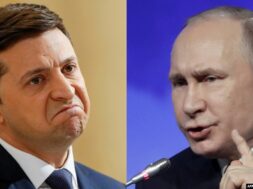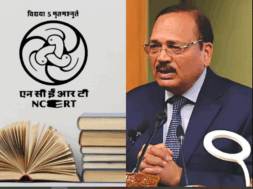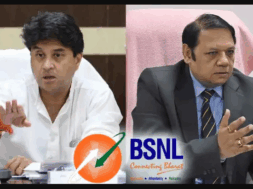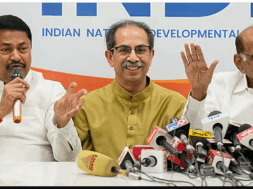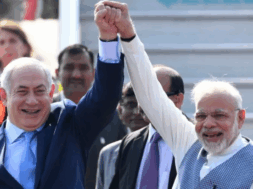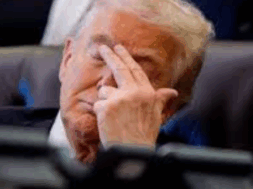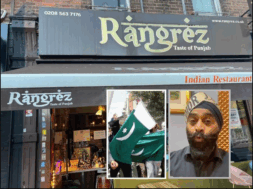
Six months later: Neither Russia won the war, nor Ukraine lost it
Virendra Pandit
New Delhi: When Russia invaded Ukraine on February 24, President Vladimir Putin believed the war would be over in 48 hours. Even the US experts thought the conflict would most likely be over in 72 hours.
However, six months into the devastating war, neither Russia won nor Ukraine lost it. It only shows the miscalculations and limits of war-preparedness.
Ukraine has unraveled Russia’s superpower image and upended fundamental assumptions about Russia’s military and economic prowess.
Of course, Ukraine has suffered extensive damage to infrastructure, towns and cities, and heavy military casualties. It may require over USD 500 billion worth of international aid to rebuild itself. The conflict has forced millions to flee the country whose grim economy is struggling.
In early March, when the US warned of impending war, those in the West assumed Russia’s much larger and better-equipped military would quickly dominate Ukraine’s forces. They also thought President Putin would find himself constrained by a weak domestic economy.
US chairperson of the Joint Chiefs of Staff Mark Milley even warned Congress that Kyiv could fall within 72 hours of an invasion. President Joe Biden boasted he would turn the ruble to “rubble.”
The Kremlin thought Ukraine was a cakewalk, a minor nation divided by incompetent leaders lacking the will to fight.
All those expectations have proved drastically wrong. Even six months on, the outcome of the war is uncertain.
What’s clear, however, is that rather than reassert Moscow as a global military power as Putin hoped, his invasion of Ukraine has launched a profound rethink of Russia’s conventional capabilities. It also prompted further expansion of the North Atlantic Treaty Organization (NATO), with hitherto neutral Finland and Sweden resolving to join the military alliance.
If President Putin has not covered himself with war glory, his Ukrainian counterpart, Volodymyr Zelensky, a former actor-comedian, has surprisingly emerged as a defiant wartime leader able to rally his nation to inflict huge losses on Russia’s military, which was forced to retreat from around the capital, Kyiv, and regroup in the east.
The US-led West and its allies are supporting Ukraine with supplies of advanced weapons, even as it is yet to show it can mount a successful large-scale counteroffensive as its allies find themselves under growing economic pressure.
Although Russia issued several threats to the West, few took Moscow seriously. For example, NATO member Estonia’s Prime Minister Kaja Kallas is not worried even after Putin named her country’s Narva city in June among the targets to recover lost Russian lands.
“The right question would be: Is it NATO’s turn next?… Is Russia ready for this?” she asked.
Forecasts of Russia’s economic collapse have likewise proved just as wide off the mark, with gross domestic product falling at a grim but less than the catastrophic rate of 4 percent in the second quarter (April-June) this year, as rising energy prices underpin budget revenue. In May, Russia’s own finance ministry forecast a 12 percent contraction this year for an economy weighed by a blizzard of international sanctions.
While the US and its close allies have imposed waves of sanctions, many countries — from China to India and the Middle East — have not, and they continue to trade with Moscow.
Russia is still trying to arm-twist Europe, which is already looking for alternatives to the Russian energy it so heavily depends upon. Moscow has cut back on supplies of natural gas to Europe, wielding an unexpectedly potent economic weapon of its own. Though preparations have been made to mitigate the impact of further Russian supply cuts, officials from Finland to Germany in recent days warned citizens to prepare for hardship in the coming winter.
The next “5 to 10 winters will be difficult,” Belgian Prime Minister Alexander De Croo said on Monday, as European natural gas prices rose to about 15 times their summer average as the Continent faced its worst drought in 500 years.
Even before the war, Phillips O’Brien, professor of strategic studies at the University of St. Andrews in Scotland, had predicted a quagmire for Putin in Ukraine, and events since have only deepened his skepticism of the quality of Russian equipment, training, and command.
Some Russian experts were well aware of their military’s weaknesses — and the challenges it would face in Ukraine — before Putin launched his February 24 “special military operation.” That’s why so many refused to believe he would pull the trigger.
One reason for Russian underperformance is that only since the war has it become clear its military was over-counting to hide its underinvestment in personnel, according to Michael Kofman, director of Russia Studies at CNA, a Washington-based think tank.
Citing overestimated Russian army and equipment ready to invade Ukraine early in February, experts said Moscow could send only 90,000 troops and many empty vehicles against 150,000 into the neighboring country.
The underperformance of the Russian air force and air defenses also led to questions over the quality of the equipment itself, as well as the training of Russian pilots and soldiers that operate them.
Russia’s ability to produce technologically advanced weapons may further erode as sanctions hamper imports. “Russia and its armed forces remain highly vulnerable to multilateral efforts to choke off these component flows and raise the costs of its aggression in Ukraine,” said the Royal United Services Institute in the UK.
Simultaneously, the motivation and ability of Ukrainian forces to innovate, out-think Russian commanders in the field, and deploy unfamiliar NATO standard weaponry have surprised many. A survey showed that 98 percent of Ukrainians are now convinced they can win the war.
Russia may not even be able to sustain its nuclear arsenal over the long term, so long as it remains sanctioned. It is trying to remain a nuclear superpower with a fearsome capability to escalate the conflict that may yet prove decisive. The Soviet Union developed its arsenal without access to Western (or modern Chinese) technology, getting it through espionage networks where necessary.
“The West underestimates elasticity of the Russian system — because it is poor and incompetent, but also quite explosive because it is global,” said Gleb Pavlovsky, a Kremlin political adviser during Putin’s first decade in power.
“And at some point, it will explode, but how it will explode is another question.”
